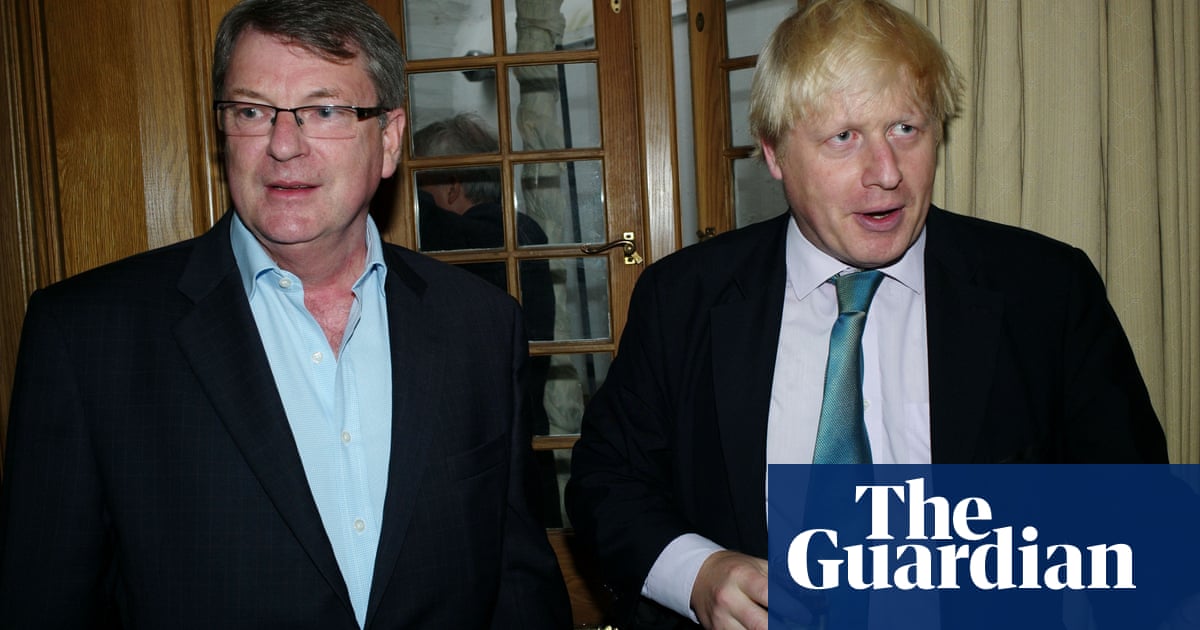
A former Russian arms boss and major Conservative party donor has taken joint control of a company seeking government approval to build a cross-Channel power line, and one of the most powerful internet cables in Europe.
Alexander Temerko, who was an oil and arms executive in Russia before seeking political asylum in the UK, gained prominence as a director of the Aquind project, and has now become a shareholder in the company.
Aquind is applying for permission to run its cable from Le Havre in France to Portsmouth, and hopes to receive a positive recommendation from the Planning Inspectorate within the next three months.
Kwasi Kwarteng, the secretary of state for energy and business, has the final say on whether to approve the venture. The plan must also be agreed by regulators and local authorities in France.
Alan Whitehead MP, the shadow energy minister, has called for clarity on where the £1.2bn of investment for venture will come from. He told the Guardian the proposed electricity and data cables, built across the seabed, would form part of the UK’s critical national infrastructure, and that he was “deeply concerned” about the lack of clarity on Aquind’s finances.
Portsmouth city council also opposes to the project. The council leader has warned that ministers face “a conflict of interest” and that if the project is approved, they may run the risk of appearing to be swayed by political donations rather than listening to the needs of those affected.
The council has raised a fighting fund of almost £250,000 to oppose the venture, saying it could severely disrupt local traffic and threaten parts of the South Downs nature reserve.
The 238km (148-mile) subsea cable is being billed primarily as an electricity interconnector, able to import enough electricity from France to meet 5% of the UK’s demand. However, Aquind also plans to lay one of the largest data pipes in Europe alongside it.
It will hold 180 fibre-optic pairs, many of which will be available for hire by third-party clients, which could include telecoms companies, technology firms and banks. Experts say the largest data pipes crossing the continent hold 200 fibre-optic pairs. The cable is almost double the size of a rival project, by Crosslake Fibre.
Aquind Limited was set up in the UK with the principal purpose of developing the cable project, and is wholly owned by a Luxembourg-registered company called Aquind Energy Sarl. The ultimate owner was revealed last summer to be former Russian oil boss Viktor Fedotov. Previously a Russian businessman, Fedotov is now a British citizen.
But documents show that in November, Fedotov transferred half of his shares in Aquind’s Luxembourg holding company to another company registered in Luxembourg, which names Temerko as the sole shareholder. This appears to bring his stake in the project to 50%.
Lawyers for Aquind and Temerko said an update on the shareholdings in the company has been filed with UK’s Companies House, but delays to the service meant they had yet to be published online.
Temerko, who was born in Soviet Ukraine, says he has cut ties with Russia and now holds only a UK passport. He and companies he is connected to, including Aquind, have donated at least £1.3m to the Conservatives.
The donations were made to at least eight ministers and MPs including the former business secretary Alok Sharma and Brandon Lewis, the Northern Ireland secretary and former security minister.
The junior minister and peer Martin Callanan is a former director of Aquind, while fellow House of Lords member James Wharton, recently appointed as universities watchdog, has disclosed that his consultancy receives fees from Aquind.
Fedotov had successfully kept his identity as owner of Aquind hidden after Companies House granted him an exemption to the normal rules requiring company owners to be identified on the grounds that his security could be at risk if his personal information was made public.
A spokesperson for Aquind said the company was “strictly compliant with all relevant laws and legislations of the UK, France and the European Union” and that “all political donations” had “complied with the relevant legislations”.
The ultimate source of Aquind’s financial support remains unclear. Aquind’s UK accounts show it has received loans of more than £23m from OGN Enterprises, a company registered in the British Virgin Islands. The owners of OGN are undisclosed.
Aquind says it has engaged with private and institutional investors in the UK and abroad in order to raise debt and equity for the venture, and does not anticipate “any funding shortfalls”, according to documents it submitted to the Planning Inspectorate.
Alan Whitehead MP, the shadow energy minister, said there should be clarity on which investors would benefit from its revenues. “I’m deeply concerned that one of these nationally important projects is being promoted and developed by a company with apparently no assets at all, and propped up by loans from another company,” he said.
“There must be some real money in this project somewhere, and it is important that we know what it is, and where it comes from.”
The Liberal Democrat leader of Portsmouth city council, Gerald Vernon-Jackson, said it “makes no sense” to run a major cable through the UK’s second most densely populated city after London. He believes the decision on planning should be taken locally, by the council.
“We are in danger of seeing what appears to be a situation in which the people who stand to be affected have virtually no say at all. I am concerned that there may be a conflict of interest at play. If this project is approved by the government, it could give the impression that you can buy planning permission by donating enough money to the Conservative party,” he said.












